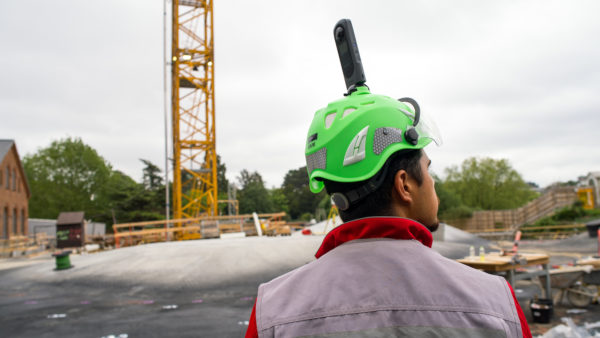The Construction Innovation Hub has partnered with Cardiff University and its Digital Compliance (D-COM) Network to develop a ‘digital ecosystem’ to help construction firms to more easily navigate the complex regulatory landscape.
The digital ecosystem will “for the first time, integrate and make more accessible” the web of tools and data sources that firms must use as part of the compliance process.
The hub and the university claim that digitisation of compliance processes will bring wider tangible benefits, including:
- greater certainty that all regulatory requirements are being met;
- reduction in time and resource spent in investigating root causes of failure;
- increased transparency through the central collection, and management of compliance data for the UK construction industry; and
- improved auditability provided through digitised compliance processes supporting efforts to create a ‘golden thread’ of information.
This digital ecosystem is due to be completed by August 2022 with the main objectives of:
- digitalising selected Approved Documents, including Part B (Fire Safety), Part L (Conservation of fuel and power) and Part M (Access to and use of buildings);
- developing a digital ecosystem (including an open platform API) to facilitate automating parts of the Building Regulations compliance checking process; and
- demonstrating a proof-of-concept of the digital ecosystem to support the Construction Innovation Hub’s Platform Construction System, developed to help change the way buildings and infrastructure are designed, manufactured, integrated and connected within our built environment.
Construction Innovation Hub programme director Keith Waller said: “Robust rules and standards are crucial to ensuring the quality and safety of our buildings and infrastructure and maintaining public trust and confidence in our built environment. We must, however, recognise that the more complex our regulatory landscape becomes, the more challenging it is for construction firms to ensure full compliance.
“By joining forces with Cardiff University and its D-COM Network to create this new digital ecosystem, we aim to simplify the regulatory landscape for construction firms, driving greater levels of compliance and reducing the administrative and financial burden associated with failure to meet rules and standards.”
Dr Tom Beach of Cardiff University said: “The UK construction regulatory landscape is becoming increasingly challenging, with not just an increasing number of regulations, requirements and standards, but also the increasing need for auditability in all aspects of compliance checking.
“As leader of the D-COM network, Cardiff University has led work proposing a vision for new open digital compliance ecosystem that can integrate regulations, assessors and project teams along with the wide variety of software tools needed to operate compliance processes in the modern built environment.
“We believe that our approach can ensure auditable compliance processes, while reducing administrative burden and increasing productivity. Furthermore, we see this open ecosystem as paving the way for the development of a new generation of compliance.
“Working with the Construction Innovation Hub, we now have the potential to deliver on this vision for a free and open digital compliance ecosystem.”
The digital ecosystem builds on groundwork laid by the D-COM Network in 2018 and supports the ambitions of the Construction Leadership Council’s ‘Roadmap to Recovery’ by developing a digital ecosystem that assists in the delivery of high-quality, better-performing buildings.
The ecosystem also addresses the need identified by the Ministry of Housing, Communities & Local Government Expert Group on Structure of Guidance to the Building Regulations for a more “holistic and systems-based approach and allow for greater cross-referencing between technical requirements and the wider legislative requirements”.
Image: 144339199 © Melpomenem | Dreamstime.com











